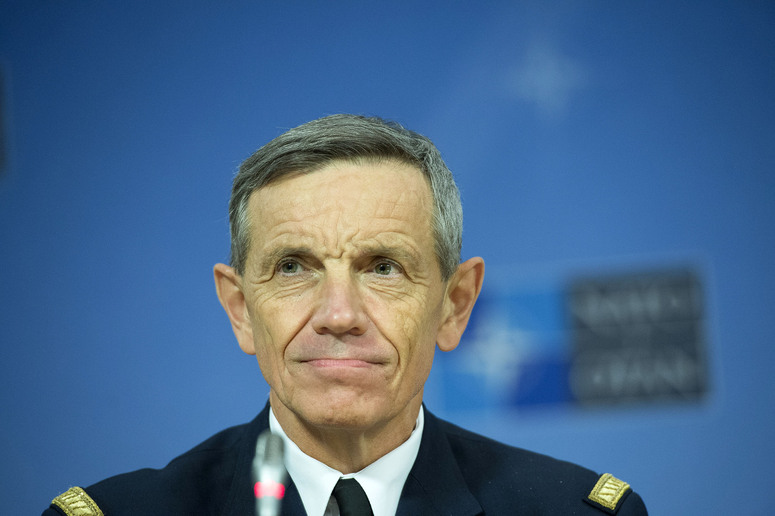Opening statement by the Supreme Allied Commander Transformation
General Jean-Paul Paloméros, at the joint press point following the 170th NATO Chiefs of Defence meeting

GENERAL JEAN-PAUL PALOMÉROS (Strategic Allied Commander Transformation): Good afternoon. We'll first recognize that results of today and what SACEUR has just stressed about the unique ability of NATO to cope with major operations during the last decades has been the result of continuous investment and the ability, the result of the unique ability of NATO to adapt itself to the environment, to anticipate in a certain way. And this is exactly the aim of transformation.
In transformation, we are looking in the deep future to see and to imagine the future trends in our strategic environment and from that we drew conclusions of the major military implications. In doing that, there's a crucial need as it was stressed in many NATO summits to recapitalize on major capabilities. It was stressed: Ballistic Missile Defence is one; air mobility is still crucial; the strategic mobility as a whole. We have to focus as well more and more on intelligence, surveillance, reconnaissance and the Allied strong surveillance is part of that. But we have to go deeper in that as well. And the more and the more is the new threat: we are focussing as well on the cyber.
So Smart Defence, this is a new approach to those challenges in developing capabilities. How the nations can work together for their benefit and to take into account the pressure on their budget, the common pressure on their budget.
Smart Defence is moving forward. It takes time because those are very important projects. But so far, we've had many good results, and certainly for the support of our operations in Afghanistan. For maintenance of helicopters, we have saved a lot of availability and money, and we have improved the service ability of helicopters. Counter Improvised Explosive Device: very successful as well, even if this is still a major threat. But nevertheless I can say that we saved lives to this kind of initiative.
But reinvesting a capability means as well reinvesting in people, like General Breedlove just stressed, and that's why we consider that reinvesting in people it's crucial for the next years to come and this is exactly the aim of the Connected Forces Initiative. CFI is not only about exercises: it's about education; it’s about training; and it's about exercises.
Education is key. We had to educate to prepare our people for the challenges of the future and we have to do that collectively. We have to train those people because if they are able to do, to perform as well, as General Breedlove said, this is thanks to the good training that we have given them in the past. And we have to capitalize on exercises together. This major crisis management exercise that we will run in 2015, whose name is Trident Juncture will be around mainly in Spain, Italy and Portugal, will be a key milestone in the development of CFI for the next year. So we have already a plan until 2018 and 2020. So it is a long-term plan, a long-term investment and we are looking for this exercise. We have the good news that already we have the commitment for more than 20,000 people. But more than that, we have a commitment for crucial capabilities. And we will make the best out of this exercise. So we can give you a rendez-vous in 2015 in Spain, Portugal and Italy. Thank you.
